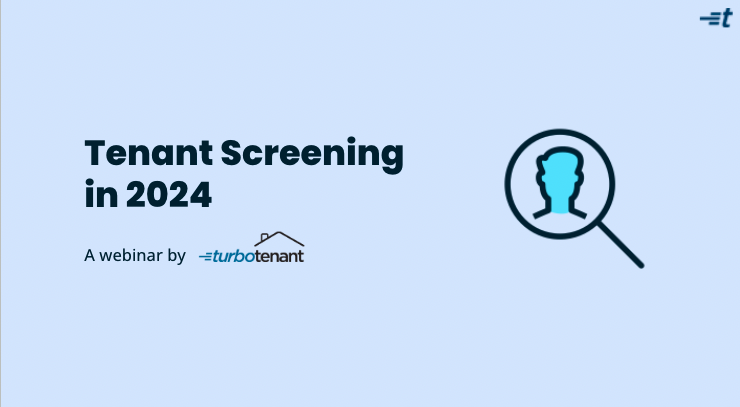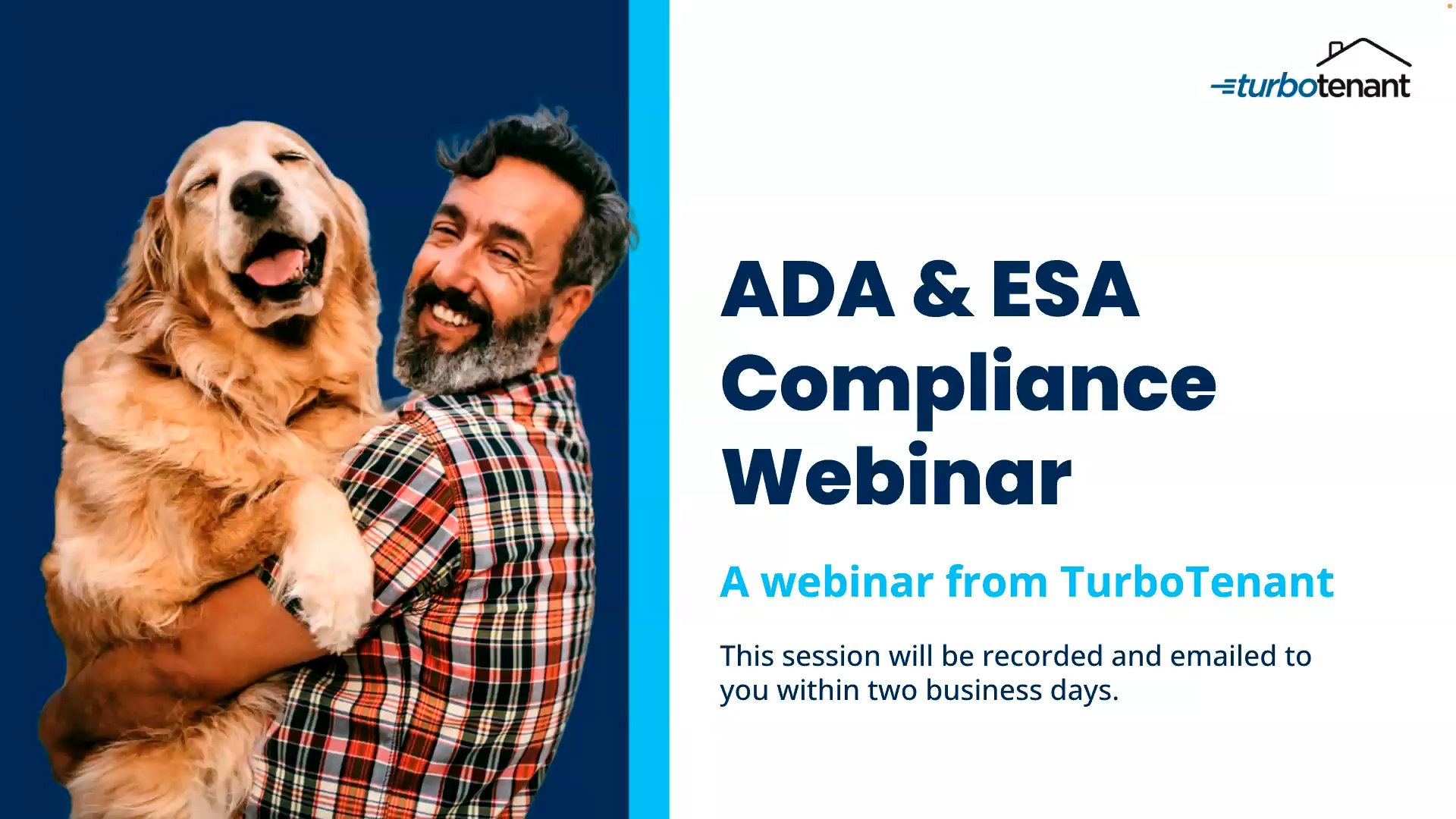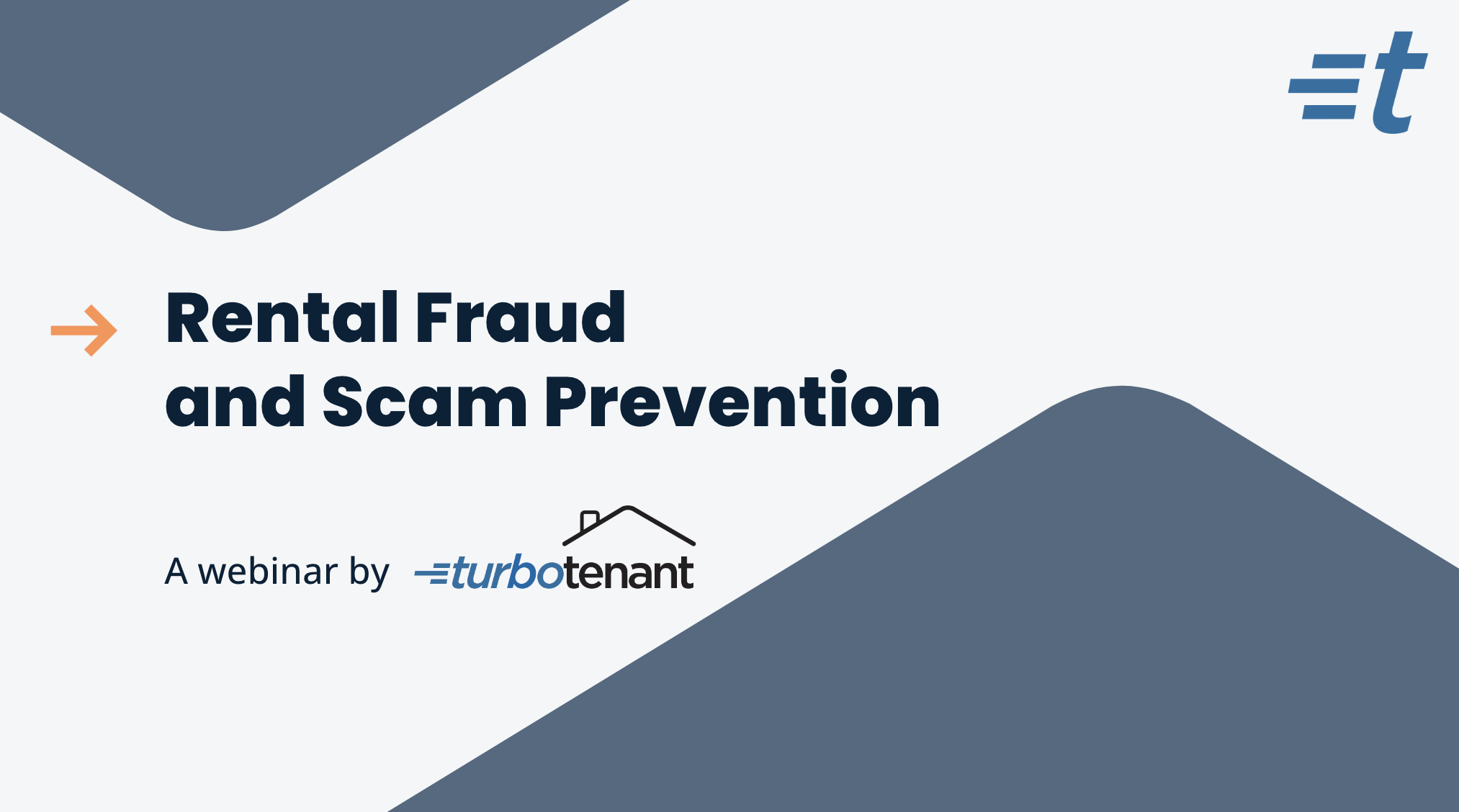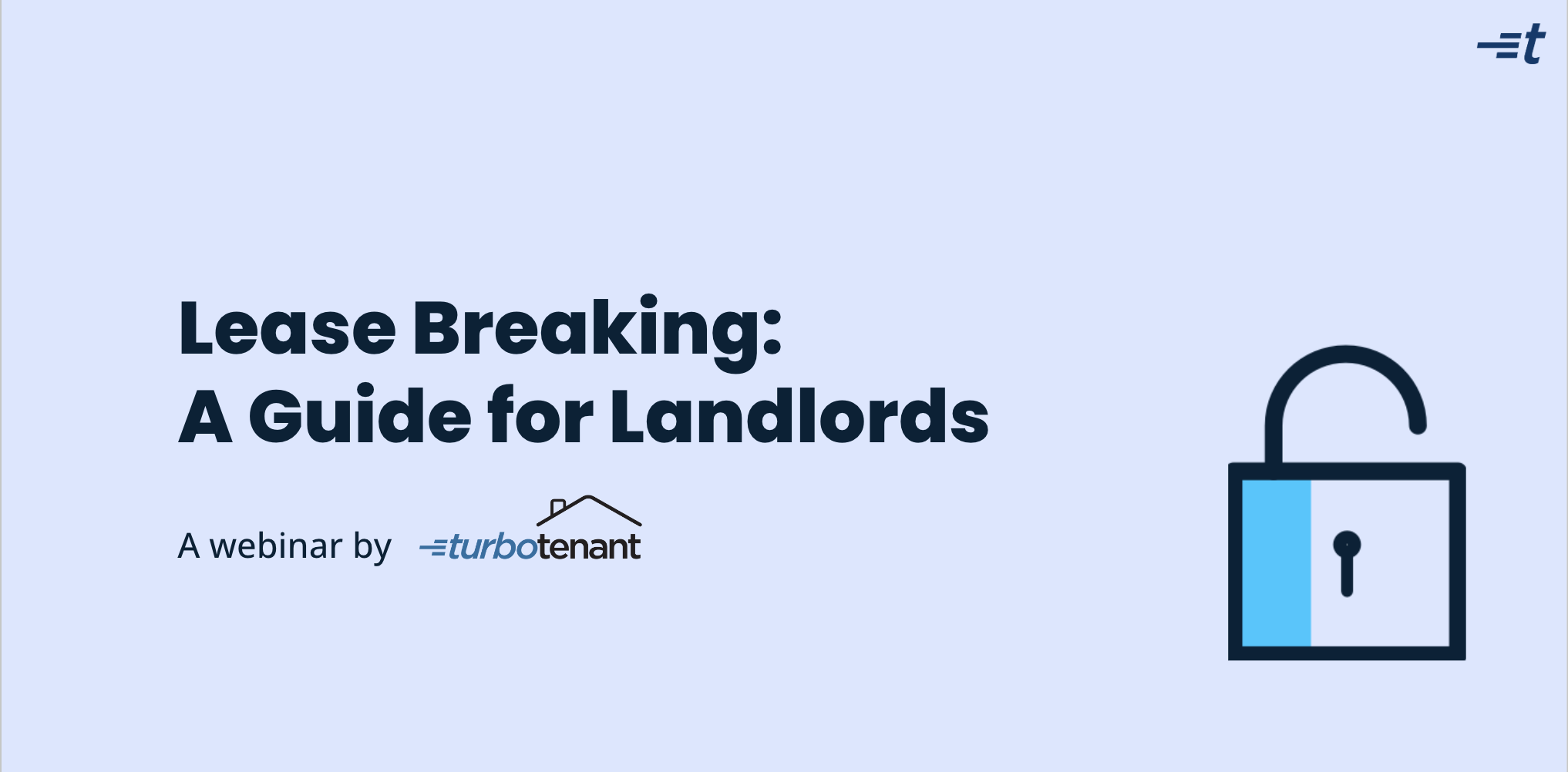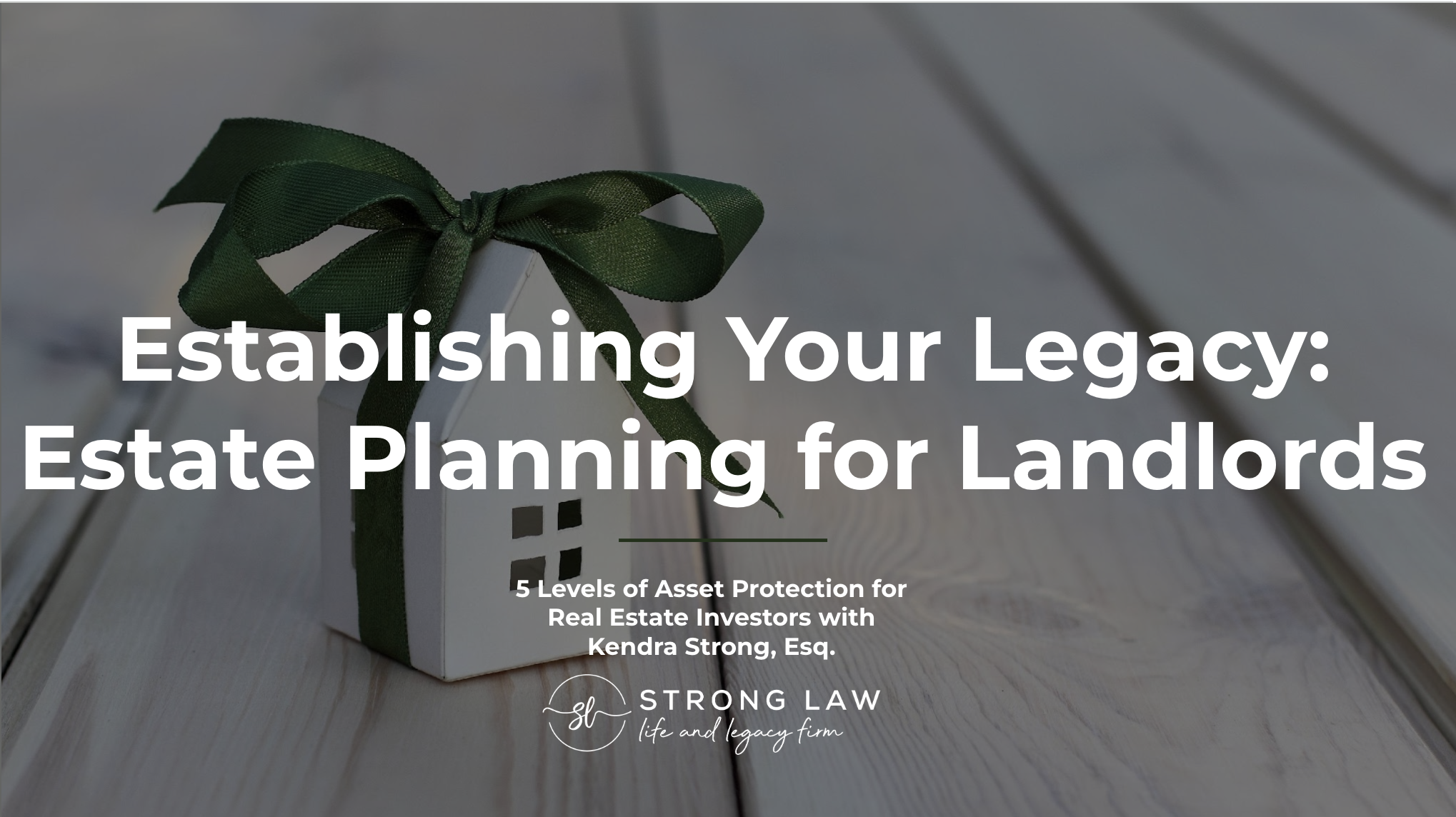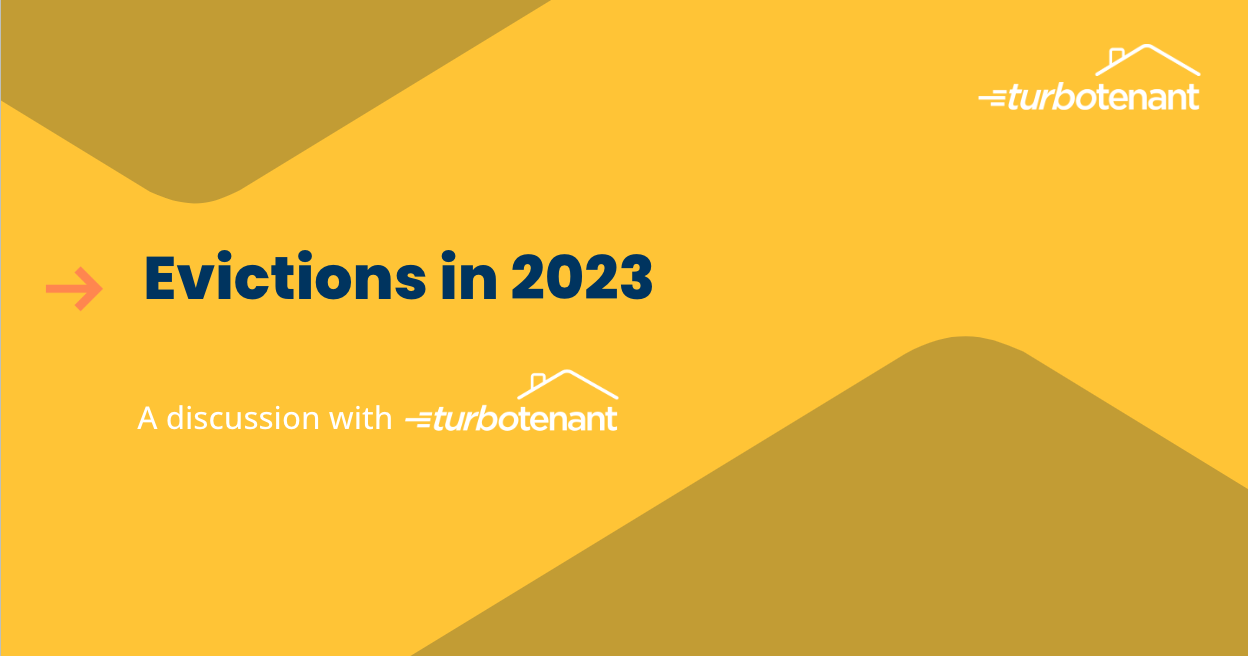All About Leases (Session 2)
In this webinar, we explore the essential aspects of navigating evictions in 2023. From understanding local eviction laws and maintaining thorough documentation to effective tenant communication and handling lease violations, we cover it all. You’ll learn about alternative eviction solutions, the importance of educational resources for landlords, and the critical role of tenant screening in preventing future evictions. We also delve into legal and financial preparedness, ensuring landlords are equipped to manage the eviction process smoothly and ethically.
Presenters



Key Takeaways:
- Lease Agreement Essentials: A lease is a legally binding document crucial for defining the relationship and obligations between a landlord and tenant. It should include key information like rent amount, lease term, and specific clauses pertinent to the property and tenancy.
- State-Specific Disclosures: Different states require different disclosures in lease agreements, such as disclosures about potential flooding or asbestos presence. It’s vital to know and comply with these requirements to avoid legal issues.
- Adding Clauses to Leases: You can strengthen a lease by adding clauses that are relevant to the property and tenancy. For example, clauses about property maintenance, rules about alterations, and subletting should be clearly defined to avoid misunderstandings.
- Communication and Clarity: Open communication and ensuring that tenants understand their lease obligations and rights are crucial. Recommending that tenants review the lease with a legal professional can help reinforce their understanding and trust in the agreement.
- Handling Lease Changes and Addendums: If changes to the lease are necessary after it’s been signed, a lease addendum is required. This document should be agreed upon by both parties and legally added to the existing lease.
- Dealing with Special Cases: Specific scenarios such as the death of a tenant, sale of the property, or foreclosure have implications for the lease. Understanding how to handle these situations legally and ethically is important for maintaining a professional relationship with tenants and protecting your interests.
- Recommendations for Landlords: Landlords are encouraged to ensure leases are comprehensive, compliant with local laws, and clearly understood by tenants. Regular reviews and updates of lease agreements are recommended to adapt to any changes in law or property conditions.
Top questions asked by the audience:
What happens if new additional charges from the HOA occurred during an executed lease, for example, if the lease starts in January and new charges begin in April, like move-in and move-out fees?
Our senior paralegal recommends including or doing a lease addendum with those fees. Including the HOA rules with your lease agreement is an easy way to ensure tenants agree to these rules. Typically, HOA rules will also state the billing cycle if a new charge is added, so having it written in your lease that your tenants agree to potential new charges backs up the addendum needed later on.
If a tenant dies unexpectedly, do we release the heirs from required rent or are they able to prohibit them from living in the property?
If the main tenant dies but there are family members still living in the unit, they may finish out the terms of their lease if another adult is on the lease. If the tenant lived alone, their estate must pay for the remainder of the lease term.
My sister is renting a property with a makeshift fence that people keep breaking into. What can she do?
Consider what the property was like before she moved in. If there was an original boundary or fence, she should approach the landlord to restore it to its original condition. It requires a conversation with the landlord.
Does my lease stop applying if I die?
No, your lease will continue to apply even if you die. Unless there is a provision saying otherwise, the tenant has the right to finish out their lease as stated in the document.
What happens to the lease if I sell my rental property?
If nothing in the lease covers the sale of the property, the new owner must honor the rental contract as it existed. The tenant will pay the original landlord until they receive written notice to pay the new owner. For the security deposit, the original owner can either transfer it to the new owner and inform the tenant or return it to the tenant per the lease terms, less any legitimate deductions.
What happens if my rental property is foreclosed on?
Usually, tenants can remain in the unit throughout the term of their lease. If the new owner wants to live in the rental or there is no written lease, it gets more complicated and might require legal consultation.
What if I break the lease or violate the contract terms?
Your tenant can sue you because the lease is a contract binding both parties. Tenants can sue landlords if they provide an uninhabitable residence, lacking heat, light, electricity, water, or having structural defects and severe infestations.
Is there a death clause already in the TurboTenant leases?
There is not, but there is a reference to death in the abandonment clause, stating the premises are considered abandoned 10 days after the death of a sole tenant.
For a lease extension, do I need to resend a new lease agreement with new dates and price or just an addendum to the existing lease?
You can do either, but ensure you adhere to your local state laws regarding notice for a lease renewal, which could be 30, 60, or up to 90 days.
Why can't I customize things like NSF fees, late rent, or lease terms in TurboTenant?
The lease agreements are state-specific to ensure they are legally valid and compliant with your state’s laws. You can add provisions within the additional terms section.
What do you think about tenants who tell you in advance they need to break their lease?
Ensure they are not breaking it for legally valid reasons like military service or serious health complications. Otherwise, negotiate with them to find a compromise.
If the landlord wants to add an addendum like requiring renter's insurance after the lease is signed and the renter refuses, what steps can be taken?
You must adhere to the original lease terms until the renewal process if the other party does not wish to change the terms.
Where can landlords find local landlord-tenant rights and laws resources?
TurboTenant has a resource on our website outlining major laws and providing links to state-specific codes and resources.
For cities requiring water to stay in the landlord's name but the tenant refuses to pay, could we have water disconnected?
No, in some states like Illinois, landlords are required to keep water on and pay for it.
One of my tenants likes to make new projects in my house, like a new deck. What kind of language should I use so he won't charge me for his leisure projects later on?
Include an addendum stating that any additions and their upkeep are the tenant’s sole responsibility. Outline everyone’s responsibilities and what happens to the additions when they move out.
How complicated should the verbiage be for a lease if I'm renting a property on the river?
It’s not typically called out in a lease, but you could include common area rules and safety guidelines to ensure legal liability.
Can I charge a relet fee if the tenant breaks the lease and moves out three months before the lease ends?
State laws vary, but any additional charges like a relet fee must usually be upfront in the lease and disclosed.
Do you have lease agreements for short-term leases or for travel nurses?
The lease agreements are customizable for the lease term, so they can be used for short-term rentals or travel nurses with additional addendums or terms.
Is the landlord responsible for tenant usage of utilities like water and garbage in Arizona?
Check your state laws for specific tenant and landlord responsibilities regarding utilities.
What measures can a landlord take when a tenant allows occupants to move in without written approval from the landlord?
This would be a lease violation, and the landlord could terminate the lease. It should be clearly stated in the lease who the authorized occupants are.
If the occupant has a new baby, when does it become a legal occupant?
The new baby would be absorbed into the lease. You should include a renewal process to update contact information and occupants.
If a ceiling fan in one of the bedrooms is wobbling and the tenant wants a new fan, can I replace it with a light fixture?
You should not replace it with just a single light bulb as it would devalue the property. Notify the landlord and let them fix it according to state repair laws.
Transcript ▼
Krista Reuther:
All right. We are here to talk all about leases. Of course, I’m joined by the incomparable Samantha. She is our landlord experience specialist. Samantha, any words of wisdom to kick us off? Yeah.
Samantha Yadav:
I am just excited to get into it. I was a property manager myself for just about a decade. So I have written hundreds and hundreds and hundreds of leases over the years. So I’m excited to jump in and I hope you are, are all also excited. That was a mouthful, like Rocky Road ice cream.
Krista Reuther:
Whoa. It all comes back to Rocky Road. But this should be smooth sailing, so hopping right in here. Woo, with a pole.
Samantha Yadav:
That’s right. We have some questions for you. So if you could take a moment to answer our poll questions, we would like to know how many rental units you own or manage. If you’ve attended a TurboTenant webinar before, do you have a TurboTenant account and where did you get the lease that you use currently? Absolutely.
Krista Reuther:
There are no wrong answers, so feel free to click around. This is a good way for us to understand who’s in the audience so we can try and throw out extra spicy tidpoints for you based on where you are in your landlord and journey. That’s right.
Also, what you might not know, Samantha is the star of our onboarding course. How is that related to this? You might ask, well, it’s another way that we teach landlords here at TurboTenant. So if you’re interested in learning more about onboarding or our product, we will certainly talk about some of the features today during this presentation.
But you can also check it out for free through our onboarding course. Give you about three more seconds. All right. So, here we are.
We will take the bulk of questions at the end with our wonderful legal professional. She’s our favorite in the biz. Jeanne is with us today, luckily enough. So she will pop on later to answer all your pressing questions there. That’s right.
Samantha Yadav:
Well, here are some things that we’re going to learn today. So our key takeaways for the day. We should know that a lease is a legally binding document. So we want to help you make it accessible for both you and your tenant to get the maximum benefit out of this contract. It’s also important to know that your state may require specific disclosures and if you fail to provide those disclosures, it could result in heavy fines and steep penalties. And we’ll look at some of those as well. And then the last thing to note that we hopefully we get we hope you get from this webinar today is there are clauses that you can add to your lease to strengthen it significantly, even in the case of debt. So stay tuned.
Krista Reuther:
Stay tuned indeed. Now, of course, there’s a lot to talk about when we talk about leases. This is arguably the most important document that you are in charge of as a landlord outside of the actual deed to the property, right? Both you and your tenant are equally bound to this lease. So you really want to make sure that everyone involved understands what they’re agreeing to, what their responsibilities are, what your responsibilities are, etc. So ultimately, you can feel, if you have the ability to recommend resources to help your tenant understand their legal obligations, then you are feeling confident about your lease.
And that’s an end goal. Some landlords shy away from that and they’re like, well, why, Krista, why would I ever, ever want to suggest that my tenant review this document with a legal professional? There are a few reasons for that. So one, by recommending that they do that, you’re going to show that you care that they actually understand this important document that they’re signing. They will have a good grasp of their obligations to you and your obligations to them, which is really important. Also, taking this step is something that could help you if, you know, in the rare case a problem arises, being able to say, hey, I took the step to recommend that my tenant review this with a legal professional so that they fully understood what they were signing. That can help you if you’re in a court setting, arguing about something regarding your lease. And arguably, most importantly, this move gives your tenants the chance to ask questions and then also try and negotiate with you.
That’s not a bad thing. So if you open up that kind of conversation, it allows you to start building your relationship on a really good, even playing field where they feel comfortable asking questions and you feel comfortable answering them. That kind of open line of communication comes in handy, not just with this particular situation, but also as they’re living in your rental. For example, if they’re not comfortable talking with you, they might not tell you when something gets damaged, even if it says in the lease that they have to. And at that point, the damage could spiral out of control, it could get really costly. And that could have been circumvented if they felt more comfortable coming to you in the first place. So take the steps to really flesh out this relationship.
It should be like a professional business-type relationship. You don’t have to learn their mother’s names or their favorite colors. But you should be able to open up and have a conversation, starting with at minimum this lease.
Samantha Yadav:
Well, speaking of lease, I have a pop quiz, Krista. So everybody get your keyboards ready because we want to know what do you think in the chat. What goes in a residential lease? What is the important part to put in the lease? Mm hmm.
Krista Reuther:
And if you’re an old hat at this, you might be rolling your eyes, but keep in mind there are some people here who have not bought their first property yet. So throw it out. What is mandatory? What do you make sure is there? And then we will take that information and build upon it.
Samantha Yadav:
John Adams says rent. Yes. That’s right. Term of lease dates and rates, two great things to have. Absolutely.
Krista Reuther:
Property rules. Yeah. Okay. Names, addresses, term, price. Samantha, since you’ve written a bunch of leases, have you ever forgotten something crucial in a lease? Or are you just too good for that? Because I don’t know if you know this everyone. Samantha’s good at everything she does.
Samantha Yadav:
I’m actually not good at unicycling. I have a unicycle. Tried it. Not great. But everything else. Good. I think that maybe, maybe back in the day, I may have forgotten something. I’m not sure if I’ve forgotten something.
I haven’t forgotten like, like an addendum. There is one instance in particular that stands out where I forgot to include an animal addendum in the lease agreement. But I do a lease review or I had done a lease review with all of my tenants, 45 minutes sit down to review the lease agreement. And the tenant and I both noticed during that process.
And so I was like, let me just go print that out real quick. So I haven’t had any that were executed I then looked back and realized I forgot something. But again, that’s because I have that 45 minutes sit down to go over everything. And that gives me an extra opportunity to look it out and look it over.
Krista Reuther:
That’s fantastic. I think that’s a really great idea. If you have the bandwidth, we’re also getting fantastic answers here in the chat. So paradise and vice investing, excuse me, highlights, important clauses in the lease specifically, which is great. Also talking about state-required disclosures, lead disclosure. Oh, in Georgia, you have to disclose the propensity to flooding.
Which is interesting. You guys are right on the money. So definitely lots of things that you need in your lease, but in terms of the core for you’re going to want all of the important information. And so far as names of all parties, the length of the lease, the rent price, including security deposit, utilities, et cetera.
Oh yes. And of course, the security deposit itself, since there are a lot of different rules around that per state. So that’s a great idea.
All right. So with that in mind, there are three sections of a lease. And if you are neck deep in the lease world, you know that these things change from state to state and sometimes even from county to county. Cook County comes up if we have any Cook County folk in the chat, you know that your area requires a lot of different disclosures and a lot of information. So let’s break down what you can expect if you’re looking at any residential lease agreement. Three sections long in the first section, you are going to have basic details.
This part is usually similar across most states. This is going to have all of the info that we just talked about on the last slide. So the length of the lease, the names of everyone involved, the address of the rental, et cetera. Section two is where you often find the state or city-specific information such as disclosures. So for example, Georgia’s propensity of flooding disclosure is probably in the second section of the Georgia lease. And lastly, we have that third section.
This one is also pretty similar across the states for the most part. It has different clauses here, usually about things like subletting, altering the property, and of course, following landlord-tenant law. So in terms of disclosures, we are talking about them a lot today and for good reason. There are some that are common across the nation and of course, some that are specifically required by the state. In terms of common disclosures that most people know about.
And don’t feel embarrassed if you didn’t know about these. I will say you should have something that indicates which fees are nonrefundable, whether that is a pet fee or just a move-in fee. You’ll also want to disclose existing damage to the property. And this is where a move-in checklist can really be helpful. I always recommend walking through with your tenant if possible and taking pictures and videos. And then both of you have copies of what everything looked like so that when they move out, they have something to refer back to and you’re both on the same page. Of course, smoking policy is also very common to disclose. We have recent flooding here now.
I’m just going to think of George when I think flooding. Something that I think is super important to highlight here. Common disclosure are the rights of domestic violence victims because they have specific rights, especially since there was recent legislation that was passed this year about evictions and having police called.
So we will email you over a copy of this deck after the presentation within two business days. This link right here actually goes out to the different rights of domestic violence victims in every single state. So I would recommend you look that over and that you have that available for anyone moving into your property. And I should say, just because your state or locality doesn’t require a disclosure, that doesn’t mean that you don’t, you can’t provide it if you want to. And this is an especially good one to provide for people because it can, you know, help them significantly. So I think that’s a good one to give you a little bit of a summary of Before we move on, the only federally required disclosure is about lead paint.
I saw a couple of you mentioning this in the chat. So the lead paint disclosure, if you are unfamiliar, it means it says that any house that was built prior to 1979, I believe, has to be, you have to disclose that there could be lead paint. So you have to give a pamphlet or otherwise indicate to your tenant that you have to be aware of the risks of being near lead paint. If you build your lease with Turbo tenant, we will attach that for you in the lease creation process. Anything else to say on that one, Samantha.
Samantha Yadav:
Yeah, I think that’s the big one. And then of course with TurboTenant, you can always upload your own attachments and addendums to the lease agreement in addition to bulking up the additional term section. But we do have a lease demo in chat. So we have recorded and available to watch if you want more information on that. Very true.
Krista Reuther:
All right. So as I mentioned, there are state-specific disclosures. I have pulled only one. It is our good old friend in the West California. Now, as I’m sure you might imagine, and if you’re in California, sound off in the comments, there are quite a few rules over there in terms of disclosures you have to give. I’ve listed some of them here. There’s everything from asbestos to bed bug information. And you can see that all of these fall into that second section where state-specific information usually sits in the lease. Another nice thing, if I can toot the TurboTenant horn here, is that when you are building a lease with us, we ask the appropriate questions so that these notices are provided to your tenant.
We are building it alongside you on the back end as you are filling out the lease on the front end. So we help you stay state-compliant with just a few clicks. With all this said, there are some states without additional disclosure requirements, though they do have local ordinances. You can see my home state Colorado is here, as are a few others, including Arkansas. Arkansas is interesting that one will come up again, but it’s just good to know that these states don’t have any additional disclosure requirements at this time. However, you still have to comply with the lead paint disclosure if you live in these states. So you might be thinking, what can’t I put in the lease?
And there are some answers to that. Your mileage is going to vary, but by and large, anything that you put in a lease cannot be purposely damaging to the tenant. So for example, you can’t require them to waive their right to their security deposit. You also can’t excuse acts of gross negligence on your part by waiving your responsibility in the lease. There are also some specific dis, excuse me, some specific unenforceable clauses related to military service.
We’ve listed one here. So you can’t require a tenant who has been called into service before the end of the lease term to pay for the remainder of the rent due for their entire lease. Right. So if Samantha is in the military, her lease ends in October. I would not be able to make her pay for the remaining months from here to there if she was about to ship off.
There are a couple more things to keep in mind as well. Again, you are not allowed to force a tenant to waive their rights. So you can’t make them waive the right of cover excuse me, you can’t make them wave the covenant of quiet enjoyment. You also can’t get them to waive the warranty of habitability. Both of these concepts are more or less the reason that people pay rent. It’s the idea that they will be able to have a safe private space that isn’t intruded upon by their landlord so you cannot make them revoke that right.
And of course, you cannot forcibly remove a tenant and the tenants personal property without going through the eviction process, even if you know to end the lease. So don’t do that. I’ve been talking quite a bit.
Samantha Yadav:
Yeah, let’s give you a break. Let’s do a poll. So we would like to know how much do you trust the lease you’re using now, one being not at all I do not trust my lease agreement but I have one, and then five being extremely love it, trust it. Maybe you have a cute pet name for it. Leasey the lease. Lisa. Lisa.
Krista Reuther:
That’s fantastic. Oh man if you need a cute pet name for your lease, Samantha and I are available for hire. Just let us know. And we’ll give you about I’ll give you a little bit more time here to click in we’re just curious how are you feeling about your current lease.
Samantha Yadav:
So far I’m loving that nobody is picking one of these options. Me too. I’m just going to click in here to see what I feel. All right.
Krista Reuther:
Let’s close out and show them. So, pretty good spread. Again, we’re really thrilled that nobody is feeling like they don’t trust the release at all that would be a very unfortunate spot to be in. And for those of you who are not feeling quite as trustful with your lease that’s a okay we’re going to go over some addendums that you might want to add and feel more confident about what you’ve got going on there.
But otherwise feeling pretty healthy with the fours and the fives. Okay. So, we’ve asked you a couple questions, are there any questions we should take right now from the chat.
Samantha Yadav:
So I’ve seen one question come in that Jeanne had had provided an answer for me just scroll to where I saved it here. What happens if new additional charges from the HOA occurred during an executed lease. For example, at least starts in January new charges would begin in April, for example, move in and move out fees. So Jeanne recommended including or doing a lease addendum with those fees. And I saw earlier in the chat someone had mentioned including the HOA rules with your lease agreement. That’s definitely an easy way to say like this is what I’m agreeing to as the home owner so you also have to agree to these rules. And typically those HOA rules will also say if the, like what the billing cycle is if a new charge is going to be added so you’ve already got it written in your lease that your tenants are agreeing to, perhaps new charges so that you’ve got that information in the lease agreement to back up the addendum that you may need to do later on. Very smart. Let’s see we have another one. If a tenant dies unexpectedly. Do we release the airs from required rent, or able to prohibit them from living in the property.
Krista Reuther:
So let’s say that your main tenant dies, but they have family that’s still living in the unit. That gets to be a little bit more complicated. My understanding is that they would be able to finish out the terms of their lease as it exists, even if the main tenant was no longer there. As long as there was another adult who was on the lease in that property. If it’s a situation in which let’s say the tenant lived alone and you’re worried about their heirs coming and wanting to resume the lease on the deceased tenants behalf.
I don’t believe that they can. Equally, I don’t think that you would be able to pursue the remaining rent left in the lease itself after the person dies, but it’d be curious, Samantha, if you have an answer for that.
Samantha Yadav:
Yeah, so Jeanne did chime in and say that the estate must pay for the remainder of the lease term. So in that first example, if there are already other co leaseholders on the lease agreement and of course they are qualified for the rental you may need to do another income qualification to make sure that they are still qualified, then they could continue their lease agreement. And I have had a similar situation, as Jeanne mentioned with the estate where at where my National Apartment Association lease is what I had used and it specifically said that death did not excuse a tenant or lease holder from the obligations, and that that financial responsibility passes on to the estate. So that was already written in my lease agreement so I was protected on that front to begin with. Wow, yeah.
Krista Reuther:
That’s really cool so it’s a lot of having forethought and putting things into your lease that you might not have to use but in situations like this are really good to have in place.
Samantha Yadav:
Let’s see I think we have one more question before we scoot on if that’s alright. My sister is renting a property with a makeshift fence piece together and people keep breaking into the backyard. This doesn’t provide a safe inhabitable environment. What can she do.
Krista Reuther:
Yeah, so first I would consider what the property was like before she moved in. Was there some kind of fence up at all was there any kind of boundary. If so, then she could approach her landlord and say hey, whatever happened to the original boundary happened I have this makeshift fence I don’t feel safe. Could you please restore the property to its original condition as it was when I signed the lease. It would definitely require conversation at the minimum I would say. What do you think Samantha?
Samantha Yadav:
That’s exactly what I was going to say if it were it was if it was fully inoperable conditions and no issues when you moved in then that’s just a normal conversation with your landlord. Just like if a light bulb were to go out or a shower door isn’t closing all the way right it isn’t working the way it was when you moved in. So having a conversation with the landlord is the first step.
If there were let’s say damages that were caused by you in the home or an animal up against the fence like constantly applying pressure or something that may be a situation that you work out together in terms of the repair or the cost or things of that nature, but it’s going to start with the conversation either way. Well said. Nice. Right.
Krista Reuther:
So, let’s get into some less common lease disclosures that you might want to consider. Again, a lot of this is just thinking through potential issues and having documentation in place so that if a situation arises you can point back to it and have a shared understanding of how to move forward. So for example, if you’re going to allow subleasing or subletting or on the flip if you absolutely do not want to allow either of these practices, put that in your lease for the uninitiated subleasing is when basically your original tenant is going to find a new tenant and set up a lease with them. So they, the original tenant is in charge of making sure that you get your money as the landlord they kind of become a middleman in this situation versus sub-letting which is where a new renter signs a brand new lease with you.
This can happen for a variety of reasons if you have questions drop them in the chat or in the Q &A will touch base. But otherwise, let’s move on to improvement. Disputes often pop up when tenants install things that could be permanent like a chandelier or a ceiling fan and then want to remove them when they move out. So it’s good to have some kind of language in place that explains what kind of improvements can be made, and then who owns them once the improvements are made and the tenant is looking to leave. Some landlords require that their tenants reach out with any kind of request to update the property whether that’s painting or installing a light fixture.
At that point, you could have a further discussion, but again, putting it in writing before that is going to make any subsequent conversations all the easier. Typically though, Tends can do what they want as long as they don’t damage your property in so far as making changes. But again, if you want to add some language to disallow that that’s okay, you can bear in mind to that you might be thinking about fair housing in this improvement conversation thinking about reasonable accommodations. Bear in mind, tenants are usually required to return the property to its prior condition if they are making any kind of reasonable accommodation. So that is unlikely to become a huge issue for you as a landlord. Also worth noting only about half of the states in the country allow or excuse me, forbid these kinds of clauses that could excuse liability for damages or anything I know I’m kind of hopping around but there’s a lot to be discussed here. So if you’re worried okay they’ve put in this reasonable accommodation but what if something happens. And what if you’re worried about these. Well, at that point you’re going to just go through the typical flow have a conversation, look at documentation and make sure that they were operating under the lease as they understood it.
If they weren’t, then you further the discussion from there. But by and large, you shouldn’t have to worry. If you’re concerned about liability, I would highly recommend requiring that they get renters insurance renters insurance can help cover any kind of liability incurred by the tenant on your property. However, if they are injured because of inadequate maintenance or something on your end, you would not be able to at that point have a clause in the lease to shed liability.
So, keep your place up to date to keep it maintenance require renters insurance. That’s how I would sum up this slide. And of course there are more things we’re thinking about here. So if your particular rental has open space, let’s say it has a play structure, you’re definitely going to want some language in your lease defining how that space or play structure should be used. Again, it’s good to indicate how you’d like to be notified about any changes to the play structure or any kind of request maybe they see something that needs to be fixed you want to know right away that way you can help keep everybody safe. In terms of what play structures could be that could be trampolines that could be swing sets pools also fall into this in terms of being large outdoor equipment.
You could have a completely separate pool addendum for specific rules regarding who has to be watching over the pool and how many people can be in there and under what conditions, and do you allow animals in the poo?
Krista Reuther:
Oh, that’s an important one. Yeah, you want to make sure that you just try and cover all of your bases to the best of your ability. So, we’re going to start with the possibility of a lease. Lastly, here we have break lease options. So the reason that this is pretty critical is because you know what if the market gets really hot, and you decide that you want to sell your rental.
Well, if you don’t have any kind of break lease option in the lease, then you’re going to have to allow the tenants to stay out their term and at which point you can decide that you’re not going to pursue an additional lease. But that means you might miss your selling window. So, make sure that you have some options in there detailing how much everybody would owe to each other. And this is also a good way to add provisions regarding what you would want done if the tenant has to break their lease early. Nobody signs a lease thinking that they’re going to break it early, or I should say most people don’t. But it’s good to prepare for just in case. Samantha, any thoughts on these disclosures before we move on?
Samantha Yadav:
Yeah, I would say a lease break or an early termination is one of those things that you should include, but you should also have a conversation with your tenants about it. Typically, yes, people don’t want to move out, but they want to know what their options are should that be something that they need to explore.
So having it ahead of time and letting your tenants know what to expect both from their side and your side is just a way to start it off on the right foot and make sure you’re all set up for success. Absolutely. Absolutely. Okay.
Krista Reuther:
So that might make you ask, okay, what if I want to change this what if I want to change my active lease? Well, the short answer is to use a lease addendum, which basically allows you to enact changes to an existing viable lease that you and the tenant will both sign off on and it becomes absorbed into the lease itself.
We have a quote here from contract council largely saying the same. Of course, there are a few things you’re going to want to make sure that you have an lease addendum. For example, everyone’s name and information, the address for the rental property, what the provision actually says, taking Samantha’s HWA example, maybe this details the latest fees that they’re going to be responsible for. You sign off on it, they sign off on it and then it gets added to your lease.
You could try to write your own lease addendum, but we also have lease addendums here at Turbo tenant if that’s something that interests you. Do let us know we could probably blather on for a long time about that process, I would say. Okay.
Samantha Yadav:
Well, Krista, I think that we have some questions. Love this for us here. Okay, so does my lease stop applying if I die, I’m the landlord and I’m dead now.
Krista Reuther:
Mausels are wait opposite, sorry. No, so your lease is going to continue applying even if you die. In most cases, unless you have a provision saying otherwise, your tenant has the right to finish out their lease as it stated in the document. This can get sticky. So definitely good to think about this no one likes thinking about their own demise and mortality and whatnot, but it’s smart to have some kind of documentation in place if you are at all concerned that you may pass and you want a clean handoff. Just something to bear in mind as sad as it might be.
Samantha Yadav:
Well I have another question. What happens to the lease if I sell my rental property?
Krista Reuther:
Yeah, so if there’s nothing in the lease talking about what happens in the case of the sale of a property, then the new owner has to honor the rental contract as it existed at the time sale. So that means that the tenant is able to finish out their term without having the rent increased, or without being evicted. And then when the lease actually comes up to term at that point, either the new owner can make a new lease agreement with the tenant, or they can provide proper notice and leave.
In terms of what happens with payment. The tenant is going to pay their original landlord until they receive written notice to direct the payment somewhere else. So that is a very crucial step you’ll want to take, if you’re no longer going to be accepting the rent payment and the new owner will be instead. You might be asking yourself, what about the security deposit.
Well, bear in mind that this information comes from UC Denver so it is local to me. You’ll want to check your local laws for what’s going on in your area, but if a property is sold prior to the end of the lease term, the original owner has two alternatives regarding their tenants security deposit. They can either transfer the security deposit to the new owner and let the tenant know by mail that the transfer has been made, or they can return the security deposit to the tenant per the terms of their lease less any legitimate deductions. So, definitely a couple moving pieces in play if you sell your rental property while there is an active lease.
Samantha Yadav:
Okay, so we know what happens if I die as the landlord we know what happens if I sell my property, but what if I’m having just a really bad time and my rental property is foreclosed on? Sad.
Krista Reuther:
Well, usually all your tenants are going to be allowed to remain in the unit throughout the term of their lease. If you are being foreclosed upon and the new owner tends to live in the rental, then it’s going to get a little bit more complicated. Same thing if there is no written lease.
So let’s talk about some of these complications. By and large, your tenant, the original tenant will have to, they’ll be given a written notice to vacate, unless they have an interest in owning the property. If they were a family member of yours, Samantha, so you as a landlord have this property, it’s been foreclosed upon your family is living there. They might have a chance to take action at that point they can’t be served a written notice to vacate.
The third case, if they are not subsidized through a government program like the housing choice voucher program and they’re substantially, they’re paying substantially less than fair market rent. You can’t just boot them out at that point and would require more conversations you probably want your local real estate attorney to be involved, because it definitely gets a little bit steep.
Samantha Yadav:
What if I break the lease? What if I violate the terms of our contract?
Krista Reuther:
Woo, that’s bad news bears. Your tenant can sue you because remember this is a contract that binds both of you equally. So everywhere except Arkansas, I promised you would come back up, everywhere except Arkansas allows tenants to sue their landlord if they provide an uninhabitable residence. In this case, that would be somewhere that has a lack of heat, light, electricity, or water, but this is not due to the tenant’s failure to pay for those utilities. Equally, a lack of sewage disposal or severe infestation of pests, including rodents and bedbugs.
If you didn’t let them know about lead paint hazards, that’s not okay. That would be considered uninhabitable. And of course, any kind of structural defects or any condition that would any condition that makes you speak like me is not inhabitable. Now, any kind of condition that is going to pose a risk is going to put you in hot water would not recommend it.
So if you’re curious, if there are any current ongoing maintenance issues at your rental that fall into this category, I’d highly recommend checking out this blog, How Long Does a Landlord Have to Fix Something when we send you this deck. Nice.
Samantha Yadav:
We are at the question and answer portion, and I think that we have a celebrity joining us.
Krista Reuther:
It’s Jeanne. Hi, Jeanne. Hello.
Samantha Yadav:
We have a few questions for you if you’re ready for the challenge. Okay. Let’s try it. Perfect. So somebody had asked if there is a depth clause already in the TurboTenant leases. Do you know off the top of your head?
Jeanne Sanford:
There is not, but there is a reference to depth in our abandonment clause. So the premises is considered abandoned 10 days after the death of the of a sole tenant. Perfect. So you can always add those in.
Samantha Yadav:
Isn’t it done? Right. Perfect. Okay. This landlord wants to know, my first year lease is expiring in a month. So for the lease extension, do I need to resend the new lease agreement with new dates and price or just the addendum to the existing lease?
Jeanne Sanford:
You could do either, but make sure you adhere to your local state laws on how much it noticed you have to give of a lease renewal. 30 days, 60 days. I’ve seen as far out as 90, I believe. Perfect.
Samantha Yadav:
Okay. This may be a question you know the answer to, and if you don’t, I do. So that’s okay. Why are we not able to customize things like the NSF fees, late rent, lease terms, if we want year to year versus month to month within TurboTenant? So I have these listed in the additional terms, but why can’t I customize them on the actual lease agreement?
Jeanne Sanford: I’m going to give that to you because it’s more the mechanics of our lease.
Samantha Yadav:
Yeah. So this was actually something that was brought up in our lease demo and chat, which we did with our product manager Raj, who builds the lease agreements on the back end. The reason for that is because we want to make sure our lease agreement is compliant in your state without necessarily going through that additional terms process.
So the NSF amount that we put in there, the late fee amount that we put in there or the late fee structure is what is legal in that specific state. And all of our lease agreements are state-specific. So the California lease agreement is going to have something different than the Colorado lease agreement and the Iowa lease agreement and so on and so forth.
So you can add additional terms provisions within that additional term section, but the lease agreement itself is legally valid as is without that customization. Correct. Perfect. Okay. What do you think about tenants who tell you in advance that they need to break their lease?
Jeanne Sanford:
You know, that you have to make sure that they are not breaking it for legally events that like say the military, they’re going on a military or there’s a lot of states that do age-related. If a tenant is past 65 and is having serious health complications, they can break the lease. So if it’s not one of those and you don’t have a clause in your lease, I would just say, you know, it’s time for some negotiation. What do you, you know, you could make them pay out the term of the lease, but look at, you know, in an individual circumstance and see if there’s room for compromise. Absolutely.
Samantha Yadav:
Okay. If the landlord wants to add an addendum like requiring renter’s insurance after the lease has already been signed and the renter refuses, what steps can be taken?
Jeanne Sanford:
So I’m just going to say off the top of my head, I think you have to adhere to the original lease as it is signed and wait out if you want to change the terms and the other party does not wish to, you’re going to have to wait into the renewal process.
Samantha Yadav:
That’s exactly right. Yep. Let’s see. Okay. Someone was asking, Krista, this is for you for a follow-up email. Can we make sure to place links to the things that we have in our webinar here, but also where can landlords go to find local landlord-tenant rights and laws, resources, what do you use, Jeanne, to find this information? What do I use to find the information? For resources for the landlord-tenant laws.
Jeanne Sanford:
I was just going to say, we do have a resource on our website, the landlord-tenant laws. And you can just click on the stature in and we’ve got an article that really outlines all the major laws and the resources. There’s links to resources to localities, state-specific laws to the code, because that’s where I go, straight to the code, and read and see what it’s in there. But I think you’ll find our resources really well presented and we are in the process of updating that currently. Nice. New laws. Yes.
Samantha Yadav:
Let’s see. For cities that require water to stay in the landlord’s name, but the tenant refuses to pay, could we have water disconnected?
Jeanne Sanford:
I’m sorry for the dog barking, but Amazon is here. For those states, I know Chicago, Illinois is one of those, and you cannot turn off the water. That is one of the things that landlords are required to pay for and keep on.
Samantha Yadav:
Let’s see. One of my tenants loves to make new projects in my house. For example, new deck carport. What kind of language should I use, so he won’t charge me for his leisure projects later on. Although it’s not necessary. I’m okay with them doing the extra work.
Jeanne Sanford:
I mean, if you could speak it, put that into an addendum saying, you know, any additions and just outline that. That is the tenant’s soul. So, you know, And so, um, cost and also the upkeep, like who’s going to upkeep that deck? Who’s responsibility is it? Cause we all know those are. Timely. Um, so yeah, I would definitely put it into addendum and outline. Everyone’s responsibilities there. So there’s no surprises.
Samantha Yadav:
And again, what happens to it when they move out? Because if, if this tenant is doing it on their own, and it’s not necessarily like permitted or they are not, uh, they’re not allowed to move out of the deck.
But if you’re a professional contractor and doing the building, and you leave that there for the next tenant, that could be problematic. Right. Uh, let’s see. Scrolling through here.
Okay. I looked at different online leases, but nothing brings up being on the water. I’ll be renting a property on the river. How complicated does that verbiage be? Or need, need to be on the water? Does it need to be mentioned? I’ve never done a lease before. So I don’t know if I’m missing anything.
Jeanne Sanford:
You know, I have to say, I’ve never seen that, uh, specifically called out into a lease. But if you’d like to include that, um, as maybe a common area to show what are the rules, you know, maybe some safety guidelines, you know, be aware. This is a riverfront property and any children would need to be. You know, supervised. So that all that would just go to ensure, um, Legal liability on your end.
Samantha Yadav:
Um, let’s see. Here’s a quick question. So landlord has to keep water operational, but can pay for tenants usage. Correct. Seems like it may have been follow up. Okay. I’m sorry. I’m sorry. Can I charge a real at fee if the tenant breaks the lease and we’ll be moving out three months before the actual end date of lease. For my time.
Jeanne Sanford:
I would say any additional charges. Some states are very specific that like, if there’s going to be that real at fee, that has to be upfront in the lease and disclosed. So that’s a tricky one state by state to look into.
Samantha Yadav:
And that, uh, does again, why I had that early termination lease break addendum in all of my lease agreements across the board, because I know that it’s included upfront. And if a question comes up, there’s not me trying to turn wheels and figure out how to make it work. I’ve say, Oh, okay, great.
Here’s the lease agreement and that addendum that we’ve already talked about in sign. Um, let’s see. I think that’s a good idea. I’m going to go back to the chat here. Let’s see. Let’s see.
My lease states, renters insurance must be included. That’s great. See any other questions coming in? I think I might be caught up. Let me just scroll back through the chat here.
Okay. Someone is asking about a faster response times. So with TurboTenant, you can use our chat option anytime, which is the chat bubble or an email to get in touch with our team. Just a 24 hour response time. If you are a premium plan subscriber, we do have a live chat option for you as well as scheduled phone support.
And that’s to make sure that our Colorado based support team can help out the half a million landlords that are using TurboTenant these days. Let’s see. Am I missing any questions in the chat there, Christa? Have you seen anything pop up?
Krista Reuther:
No, I mean, you’ve done a fantastic job. Um, we did just get one question in the Q and a will we be doing any webinars on short term vacation rental leases? You know, we are always welcoming any kind of topics that you want us to discuss. We live for you, um, in that way.
So happy to add it to the list. I think if we, if you want a sneaky peek of what we might do next month, I think we’re going to continue this streak about talking about legal things. Um, along with perhaps security deposits. So, uh, you should keep an eye on your inboxes for our upcoming events email that’ll be coming out in the next couple of weeks. Nice.
Samantha Yadav:
I have two more questions that came in. Um, okay, Jeanne, the law uses the term reasonable. How much time is reasonable?
Jeanne Sanford:
Well, the legal definition of reasonable is what is appropriate, ordinary or usual in the circumstances. So they tend to look at what are the other states say? Is it, um, 14 days? Is it seven something reasonable? I hope. Legal terms are tricky because. They’re legal terms.
Krista Reuther:
Um, And I will point out, although Jeanne, you’ve covered it beautifully. Reasonable means one thing in a situation that’s not emergency and in an emergency situation, that reasonable timeframe is going to shrink down. So once again, I’d recommend that blog.
How long does the landlord have to fix something because it outlines a couple of different scenarios that you could expect to encounter. Um, but by and large. Communicating sooner rather than later is good. Uh, make sure that you’re having those conversations, even when they’re tough, it’s easier to do it before you pass the deadline and incur any kind of fines or fees or issues. So have those conversations sooner rather than later.
Samantha Yadav:
Um, let’s see, have there been any recent laws passed limiting rent rates?
Jeanne Sanford:
I am watching all the states and the new legislation and I have not seen, um, anything passed on that. Nice.
Samantha Yadav:
And I see Jonathan dropped a link to the blog on how long does the landlord have to fix some things, so lots of resources in there. Um, let’s see, do you have lease agreements for short-term leases or to travel nurses? Uh, our lease agreements are not necessarily built for short-term or travel nurses, but they are customizable for the lease term. So you can make it work for a short-term rental or absolutely use it for short-term or travel nurses and then just add an additional addendum or agreement or terms that specify the things that may be different from the long-term residential lease. Um, let’s see. Do we know is the landlord responsible for tenant usage of utilities like water and garbage in Arizona?
Jeanne Sanford:
I’m going to go ahead and do a quick recap of what is the TENET responsibility versus the land money. Yeah.
Krista Reuther:
And if I can, I’d say. We dropped a link earlier to the state-specific information that we have here at TurboTenant. One of the ways that I approach questions like this when I’m researching is the state specific information that we have here at TurboTenant is to head to a .gov website. So if I was in your shoes, I would maybe search. Arizona landlord utility responsibilities .gov and see what pops up because most likely you’re going to land on a government page for your state that outlines who’s responsible for what. So that’s how I take a whack at it if I was in your shoes. And then I’m going to go ahead and do a quick recap of what
Samantha Yadav:
What measures can a landlord take when the tenant allows occupants to move in without written approval from the landlord. Unauthorized occupants.
Jeanne Sanford:
You know, that is not subject to the terms of the lease. So they would be eventually, you know, have that as a lease violation, which a landlord could terminate their lease.
Samantha Yadav:
So that’s what I would recommend. Yes, absolutely. So you can have it listed on the lease agreement who the authorized occupants are or the leaseholders. And it typically says something to the effect in the TurboTenant lease at least. It says something to the effect of anybody not listed here is not permitted. So keep that in mind. And it’s all about what’s written in the lease. Yes.
Krista Reuther:
And I will say too, you should consider having some kind of guest policy in your lease. Something that defines, Hey, if somebody stays this many nights in a row, they are now considered to no longer be a guest and there could be fees incurred. Absolutely.
Samantha Yadav:
Let’s see what if the occupant has a new baby? When does it become a legal occupant? That’s a good one. Any insight into that, Jeanne?
Jeanne Sanford:
I, that’s a new one, but I would just say, you know, that new baby would be absorbed into the lease. You’re not going to say you’re in. Kick them out. No. So that’s an interesting one to look at, but just, you know, as a reasonable. Response would be like that. That new child. Is brought in under the lease. If there’s any other,
Samantha Yadav:
It’s also a great idea with renewal. One thing that I did was I sent a letter to the tenants asking for updated contact information. If anything has changed with the lease holders who are in or not in the home, if there are new occupants, car information so that I had for parking details.
I’ve got that there. Update the emergency contact. So that’s a great way to add an additional person to the lease in the case of a baby without being, um, maybe.
Asking them like, why isn’t your baby on the lease agreement? Yeah. Okay. Let’s see.
We’ve got another one in the Q and A. If there’s a ceiling fan in one of the bedrooms and the tenant says it is wobbling and wants a new fan. Can I just remove the fan and replace it with a light fixture? Or do I have to replace the fan? Try to balance the fan, but to no avail.
Jeanne Sanford:
I mean, I would say you, you have a fan. You can’t replace it with just a single light bulb. That would be devaluing the landlord’s property. So, and it all depends on the repair. Law in your state. I mean, are you allowed to, um, make repairs and deduct them from your rent?
That’s all state by state specific. Um, you know, I would go the route of notifying the landlord and let him. Fix that. Him or her. Let them fix it. Yep. Perfect.
Samantha Yadav:
I think I caught up on all our questions and our Q and A’s. Beautiful. If there’s anyone wants to sneak one more in there. Oh, no sneaking. Okay.
Krista Reuther:
Well, let’s see. I think we have one more pull. It’s probably going right now, I’m guessing. Um, so with that, I’m curious, Samantha and Jeanne. Are there any interesting lease stories you have that you could share with the group, maybe something? Not going as you planned or really having to get in and have a help your tenant understand what is going on with the lease agreement.
Jeanne, do you have any good ones?
Jeanne Sanford:
I think we have a lot of good ones. You know, I feel like I’m more on the back end of, you know, creating these leases not working with the tenants. So I’ll leave that. See if you have any interesting stories.
Samantha Yadav:
Oh boy. I have stories for days on all kinds of things. But I think, I mean, the real big thing for me is again, just that like sit down with my tenants. Again, it’s 45 minutes on their move-in day, which. I mean, I guess it could seem like a long time or not a long time for you as a landlord.
But I was managing, you know, 250 to 1500 rentals at a time, like in a multifamily community. So if I could figure out a way to set aside 45 minutes to better prepare someone for our next year together, that’s definitely worth it for me. And that gives them the opportunity and a safe space to ask questions and clarification. And if they read something in the lease agreement that doesn’t make sense, like that’s your opportunity at the end of the month.
So I think that’s just the big thing. And it’s just as much as the person who’s made an investment in this home. To explain it to them so that they can help you take care of your investment. So I think that’s just the big thing is again, making sure that it is a partnership and it’s two people in the contract together. And it’s just as much your responsibility to make them feel comfortable signing that as it is for you to uphold your side of things as the landlord.
Krista Reuther:
Beautifully said. In fact, I couldn’t think of a better note to end on. So, everyone, thank you so much for attending our webinar today. It’s been a joy talking about leases with you.
If you have any follow-up questions, feel free to reach out. Samantha is all over social media. So if you’d like to chat with her and gain her vast wealth of knowledge, you certainly can. She’s also the host of our onboarding course with John, which Jonathan has dropped in the chat.
So if you just want to learn how you can make a lease with a TurboTenant without actually going through and making a lease, watch Samantha do it. She’s an old pro. Once again, Jeanne, it has been so lovely to have you. Thank you for sharing all of your knowledge with the people. You are a giver. We appreciate you and everyone on the call. I hope you have a great rest of your Tuesday.








